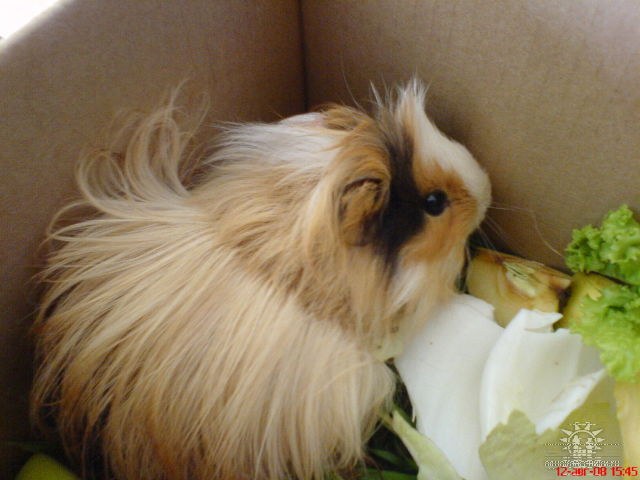Get ready!
Do not forget about pigs for a long time, they do not like being alone, because in nature these animals live in packs. If your Guinea pig lives in a cage, you will see how bored she will get up on its hind legs and begin to call you a whistle. Don't forget to get her out of her cage so she can run around freely and socialize with family members. If your pet move freely around the apartment, don't forget to give him a separate hole, so he could retire and hide from danger.
In a standard cage 40*40 instead of litter you can use hay, shavings or straw, and wood cat litter. Granulated wood filler absorbs the liquid and eliminates odor, and even Guinea pigs bite him. Fine sawdust is not desirable to use, as they can get the pig in the eye and the respiratory tract.
Features feeding!
To feed the Guinea pigs fairly easily, of course they are not suitable food from your table, but their diet is pretty simple. It is better to feed your pet 2-3 times a day at certain times so as not to lead to the development of diseases of the digestive system. The best food for Guinea pigs, experts say: wheat bran, oats, carrots and a variety of grass in summer and hay in winter. To adult need: half kilo of grass, or 60g of hay; about 100 g of vegetables and fruit plus grain or bran – 50 grams and a bit of the granules 10 to 20 gr.
The food should contain vitamin C about 5 mg, as well as in the evolution of the Guinea pigs have lost the ability to synthesis, and it is not always contained in the feed. The diet must contain seeds, cereals, potatoes, vegetables, grass, dandelions, lettuce, turnips, beets, cabbage, tomatoes, apples and hay. It is best to give ready food, which in the range are available in pet stores, but if you give self-prepared food, you will certainly observe the following proportions: coarse fibers - 15%, crude protein - 20% of animal protein to 4%, and hay and water in sufficient quantity. Pregnant females need to increase the content in the feed of glucose.
Contraindicated!
Don't let Guinea pigs: red cabbage, cheese, sausage, meat, eggs, sweets, unripe or overripe fruits and berries, and damp, moldy, rotten or contaminated food, and scraps from your table.
Do not change your diet drastically in order to avoid digestive disorders.
